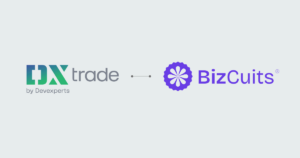Australian authorities propose introduction of director identification numbers
Eligible officers of all Australian companies are poised to be subject to the new requirement.

Directors of Australian businesses may have to apply for unique identification numbers, as proposed in a draft legislation published earlier today on the website of the Australian Government.
The Treasury Laws Amendment (Registries Modernisation and Other Measures) Bill 2018 amends the Corporations Act and the Corporations (Aboriginal and Torres Strait Islander) Act 2006 (CATSI Act) to introduce a director identification number (DIN) requirement.
An eligible person will have 28 days to apply for a DIN from the date they are appointed a director unless they are provided an exemption or extension by the registrar. After receiving an application, the registrar must provide the director with a DIN if the registrar is satisfied that the director’s identity has been established.
The new requirement contains transitional provisions that apply in relation to a person that is currently appointed as a director at the time the new requirement starts to apply. Such a person has 15 months to apply for a DIN from the application day of the new requirement.
The DIN requirement will initially operate with respect to only appointed directors and acting alternate directors. It does not extend to what are commonly referred to as de facto or shadow directors.
Directors of all Australian companies are set to be subject to the new DIN requirement. This includes directors of companies that are responsible for managed investment schemes and registered charities.
The new law provides for two categories of persons who may apply for a DIN. The first category of persons who may apply for a DIN are directors. The second category of persons who may apply for a DIN are person who are not directors but intend to become directors within 12 months. It is not compulsory or required that any such person obtain a DIN or apply for a DIN. However, the new law enables such persons to obtain a DIN should they so desire.
The aim of the amendment is to promote good corporate conduct. In particular, the new requirement assists regulators to detect and address unlawful behaviour, such as phoenixing.
Phoenixing occurs when the controllers of a company deliberately avoid paying liabilities by shutting down an indebted company and transferring its assets to another company. This impacts on creditors who fail to receive payments for goods and services, employees through lost wages and/or superannuation entitlements and the general public through lost revenue to the Government. The total cost of phoenixing to the Australian economy is estimated to be between $2.9 billion and $5.1 billion annually.
The DIN will require all directors to confirm their identity and it will be a unique identifier for each person who consents to being a director. The person will keep that unique identifier even if their directorship with a particular company ceases. As such, the DIN will provide traceability of a director’s relationships across companies, enabling better tracking of directors of failed companies and will prevent the use of fictitious identities. This will assist regulators and external administrators to investigate a director’s involvement in what may be repeated unlawful activity including illegal phoenix activity.
To date, although the law has required that directors’ details be lodged with ASIC, it has not required the regulator to verify the identity of directors. This verification aspect of the DIN will improve the integrity of the data and help with enforcement action associated with phoenixing.
The new DIN regime will also offer benefits beyond combating phoenixing. For example, more effective tracking of directors and their corporate history will reduce time and cost for administrators and liquidators, thus improving the efficiency of the insolvency process. Furthermore, the new regime will improve data integrity and security, including by allowing directors to be identified by a number rather than by other more personally identifiable information such as their name and address.
There will be penalties for those who fail to meet their new obligations. For example, failure to comply with the requirement to apply for a director identification number within 28 days of appointment may lead to a civil penalty – $200,000 for an individual; or 1 million for a body corporate.
Interested parties are invited to comment on these proposals. The feedback is expected not later than October 26, 2018.









